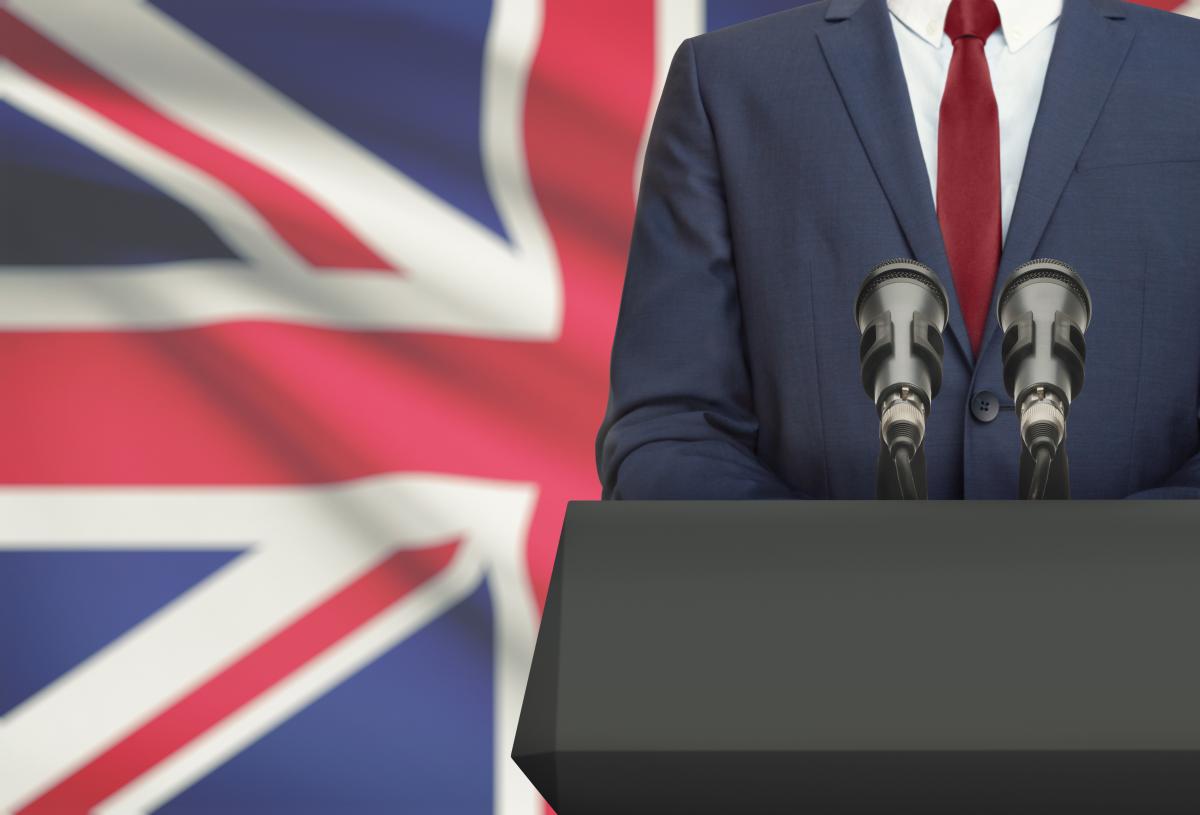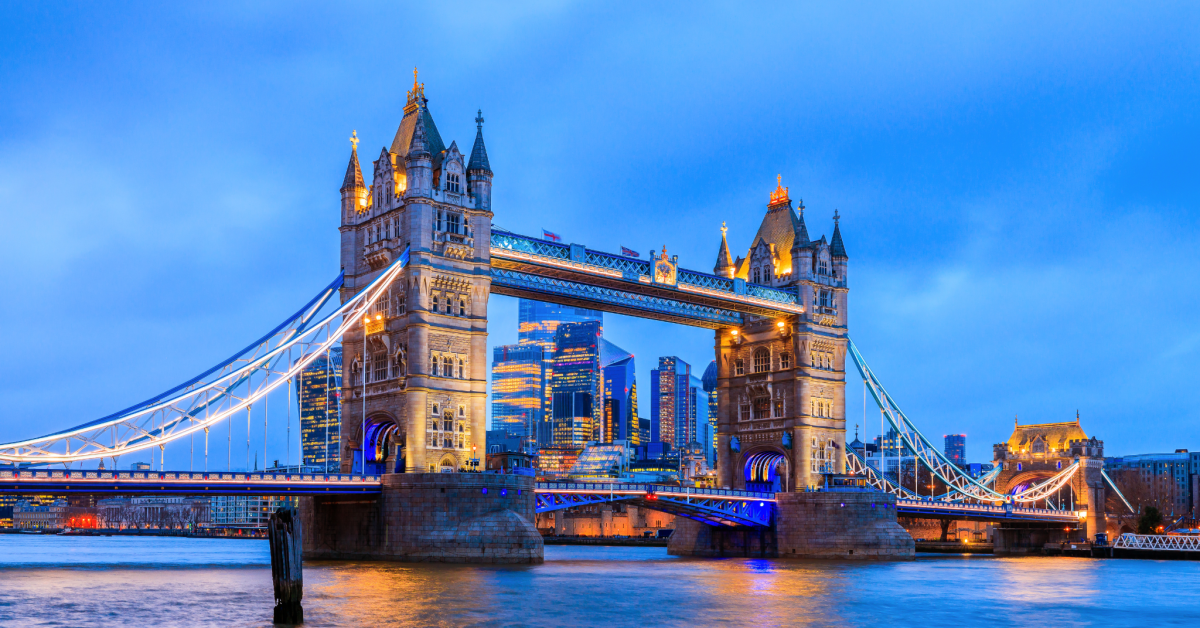President Trump’s second State Visit to the United Kingdom was more than a ceremonial showcase of pageantry. Against a backdrop of domestic political turbulence and global uncertainty, it was a pivotal moment in recalibrating the US–UK Special Relationship for a new era of economic diplomacy, technology, and security. For Downing Street, it delivered proof that global diplomacy can directly translate into domestic benefit—creating jobs, driving investment, and reinforcing Britain’s position as America’s most capable and dynamic partner in Europe. For the White House, the visit provided both symbolism and substance: affirming America’s most enduring alliance while demonstrating that trade and technology agreements remain at the heart of President Trump’s economic vision.
While differences between the two leaders remain including over Gaza and decarbonization, the overall message was clear: the Special Relationship is being reshaped for the 21st century—anchored in trust, measured by outcomes, and powered by shared ambition.
Edelman Public & Government Affairs US/UK Perspectives
US Perspective
During this week’s state visit, the United Kingdom worked to strengthen its relationship with the Trump administration.
At an opulent dinner Tuesday evening at Windsor Castle - his second state visit - President Trump praised the “bond of kinship and identity between America and the United Kingdom” as “priceless and eternal.”
With trade and foreign policy stakes running high, Prime Minister Keir Starmer met with Trump on Wednesday. Starmer has recently praised Trump in an effort to be in the President’s good graces as Britain looks to deepen its economic ties with the US, ease tariffs, and hold difficult conversations on Israel’s offensive in Gaza and Russia’s war in Ukraine. Starmer later described the talks as a turning point, saying, “We’ve renewed the special relationship for a new era.”
Prime Minister Starmer was proactive in pursuing a trade deal that lowered tariffs in two major industries: auto and aerospace—one of the first trade deals negotiated by the Trump administration.
On Thursday, Trump said he and Starmer had “quite a meeting” with business leaders, claiming the visit had already galvanized “$350 billion in deals across many sectors.” This week’s tech agreement will continue to solidify the US–UK trade relationship.
Starmer also emphasized security priorities, noting that the leaders had discussed “how we can build our defenses, further support Ukraine, and decisively increase the pressure on Putin to get him to agree a peace deal that will last.” He added, “And, President Trump, you have led the way here—and we will continue to stand and work together for security and for peace.”
This trip ultimately served as a carefully staged display of goodwill and shared values. While unresolved disputes on trade and foreign policy remain, the visit strengthened personal ties at the highest levels and reinforced the sense that Washington and London’s partnership will remain durable.
UK Perspective
President Trump’s second State Visit to the United Kingdom is a high-profile reaffirmation of the UK–US Special Relationship, rooted in history, but recalibrated for a new era. It is more than ceremonial—it’s strategic theatre, where every element, from the Red Arrows flyby to the private meeting at Chequers, is engineered to broadcast a message of intent to investors, allies and domestic audiences. The UK is open for business, it’s serious about driving growth through high-value, strategic alliances and it is stepping forward as the United States’ most capable, trusted, and dynamic partner in Europe and beyond.
At a time when both countries are navigating complex domestic and global headwinds, this visit underscores a shared determination to drive forward with outcomes. For the UK, this is a moment to assert itself as the United States’ go-to ally on the European stage. From trade and technology to defense and global security, the UK is utilizing this State Visit to position itself as a gateway to innovation, policy alignment, and economic opportunity in the region.
Crucially for Downing Street, this visit is structured to demonstrate that foreign policy isn’t abstract. Instead, it has material implications and benefits for people across the UK and the headline message is: economic diplomacy delivers. Whether it’s opening export markets for British manufacturers, attracting investment into regional tech clusters, or deepening collaboration that sustains jobs in key sectors, the outcomes are deliberately tangible and nationwide. This is diplomacy that has to drive real-world results, anchored in strategic relevance and measured by domestic impact. The UK Government is making a deliberate statement: global engagement and local prosperity go hand in hand.
At these moments in politics and diplomacy, personal chemistry between leaders plays a significant role. By invoking Winston Churchill’s legacy, the UK is drawing a parallel between past and present leadership in uncertain times. Both Churchill and Trump embody transatlantic ties at a personal level—Churchill through his American-born mother and Trump through his British-born mother. The private meeting at Chequers reflects more than hospitality, it’s an expression of trust, continuity, and shared vision. These one-on-one moments matter when navigating complex geopolitics and setting the tone for strategic collaboration.
The structure of this visit also marks an evolution in the UK’s diplomatic playbook: outcome-oriented, leader-driven, and intent on moving beyond traditional ceremony toward strategic delivery. Ceremonial traditions are not abandoned, but rather repurposed as platforms for influence, investment, and industrial opportunity. It signals a model of diplomacy that is transactional and transformational in equal measure—anchored in values but measured by outcomes that matter to people on both sides of the Atlantic.
The UK–US Tech Prosperity Deal
Signed today at the Prime Minister’s country estate, Chequers, the UK–US Tech Prosperity Deal has been the cornerstone announcement of the State Visit with business and investment replacing the pomp and pageantry seen at Windsor Castle. Yet the agreement goes beyond platitudes. The UK is already the third largest AI market in the world, after the US and China, and larger than any other country in Europe. The convergence of UK and US talent, as well the announced investments, will accelerate economic growth and help bind the strategic alliance between both nations. Prime Minister Keir Starmer has said, “This Tech Prosperity Deal marks a generational step change in our relationship with the US, shaping the futures of millions of people on both sides of the Atlantic, and delivering growth, security and opportunity up and down the country.”
£31 billion has been committed by America’s top technology and AI firms, topping up £44 billion in existing British Government committed investment. Under the UK–US tech agreement, investment is being channeled into AI infrastructure & supercomputing, Data centers and cloud infrastructure, Quantum computing & other frontier tech, R&D, and upskilling workforces. In doing so it is being positioned by both governments as bringing “new healthcare breakthroughs, clean homegrown energy, and more investment into local communities and businesses in Britain and the United States.” The forging of joint research schemes is also being heralded as a mechanism to further the use of AI that will allow the development of targeted health treatments as well as catalyze developments in shared priority technologies like fusion energy. Enthusiasm has been deservedly high. Founder and CEO of NVIDIA Jensen Huang said, “We are at the Big Bang of the AI era—and the United Kingdom stands in a Goldilocks position, where world-class talent, research and industry converge.”
Whereas investments are being spread across the country, central to the shared AI ambitions is the announcement of a “Stargate UK” supercomputer, backed by British firm Nscale and American firms NVIDIA and OpenAI. While more modest than its $500 billion US namesake, it will be strategically vital for AI platform development and sovereign model development. As host to Stargate UK and the proclaimed “AI Growth Zone,” 5,000 jobs are expected to be created in the North East and more may follow with billions in private investment also projected.
Elsewhere, Microsoft, Google and Blackstone are headlining investments across the country. Microsoft has pledged to spend £22bn over four years for AI and cloud infrastructure, including a supercomputer, while Google is to invest £5bn over the next two years to expand an existing data center in Hertfordshire. Blackstone will spend £10 billion to build a hyperscale AI data center in Blyth, Northumberland, expected to create around 4,000 jobs, and AI cloud computing company CoreWeave is also boosting investment to £2.5bn in the past year for an AI data center in Scotland.
Less visible in the agreement, however, is alignment on regulations that will govern the digital services these investments will serve. No change or removal of the Digital services tax (DST) has been announced. This has been a sticking point in UK–US trade discussions and both governments are now reasonably expecting a resolution to be found by the time these investments and tech assets come online. Also pending is agreement on data flows, privacy, AI liability, and trade in digital services. These will be the next hurdles to be overcome in making the most of the UK–US Tech Prosperity Deal.
A New Nuclear Generation
The UK–US energy security agreement is ostensibly part of the UK–US Tech Prosperity Deal as it contributes to the energy infrastructure necessary to power the two nations’ technology ambitions. It evidently captured President Trump’s attention during today’s signing at Chequers. The agreement will lead to enhanced cooperation and investment on clean energy with an emphasis on nuclear, small and micro modular reactors, sodium-cooled fast reactors with integrated molten salt energy storage systems, and even the holy grail of clean energy: nuclear fusion.
Since the British government recategorized nuclear as being sustainable in 2023, large reactor projects have dominated. This agreement represents a shift in focus and scale, further enabling a dynamic and decentralized market that has already reportedly created 11,000 jobs in the past year. Language surrounding the agreement has been enthusiastic. Both the PM and Energy Secretary proclaimed the advent of “a golden age of nuclear” in the UK and what US Secretary of Energy Chris Wright has called a “true nuclear renaissance” to meet rising energy demands and fuel the AI revolution. Cooperation with the UK evidently aligns with US strategic interests too with US Secretary of the Interior Doug Burgum stating, “This is how we unleash the full power of American Energy Dominance—with innovation, strength, and key geopolitical collaboration.”
The agreement will make it quicker for companies to build new nuclear power stations in both countries, as well as clear the way for a major expansion of new nuclear projects in the UK. Framed as “the biggest backing of nuclear in a generation” that is leading to a private sector boom, the agreement is expected to drive billions in private investment and create thousands of jobs around nuclear. Eleven firms are named by the government as investing in the UK, with just two of the projects having a combined and estimated value of £51bn.
Conclusion: Economic diplomacy delivers but challenges ahead
The second State Visit of President Trump to the United Kingdom was more than a carefully choreographed show of transatlantic pageantry. It delivered a meaningful recalibration of the UK–US Special Relationship rooted in personal rapport, mutual economic interest, and geopolitical necessity.
Going into this State Visit UK officials had hoped for some progress on reducing Steel and Aluminum tariffs to zero—as promised by the Trump Administration earlier in the year. Optimistically, some even speculated that there might be progress towards a wider US–UK trade deal. Neither was really likely, and the impact of the Steel and Aluminum tariffs will continue to impact a UK industry that is seen as part of the critical national infrastructure, but is also on the financial brink.
The absence of domestic political fallout—including over the high-profile dismissal of Lord Mandelson—allowed the Prime Minister to stay focused on the bigger picture. And the bigger picture delivered.
The “Tech Prosperity Deal” unveiled during the visit provides a substantive economic anchor: fresh US investment in AI, nuclear power, and clean tech that aligns with the UK’s long-term growth strategy and strengthens its post-Brexit footing as a magnet for innovation. President Trump’s position on Ukraine, reinforced by pointed language—“Putin has really let me down”—signals a recalibrated US posture on European security. The leaders also managed their disagreements over Gaza and decarbonization with a surprising degree of collegiality.
All of this unfolded against a volatile backdrop. Recent violent demonstrations in London led by the far-right, internal political pressures, and the shadow of past political scandals could have easily derailed the visit. Instead, the tone was forward-looking. President Trump’s own remarks—calling the alliance “an unbreakable bond” and “a beautiful inheritance”—reflected a level of warmth and commitment that few anticipated at the outset of his second term.
And that, ultimately, may be the most significant outcome of the visit: the reaffirmation of an alliance under pressure, shaped not just by legacy but by necessity. As protectionism rises and global cooperation fragments, the UK—the smaller, more vulnerable partner—needed this reset to yield more than ceremony. It needed durable economic wins. The investments secured this week offer that.
Implementation of the announced deals will face scrutiny. Strategic alignment with an unpredictable White House will require agility. But for now, both leaders leave the table with what they came for: proof that diplomacy, when done well, still delivers.
Materials presented by Edelman’s Public & Government Affairs experts. For additional information, reach out to Mohammed.Hussein@EdelmanEGA.com



